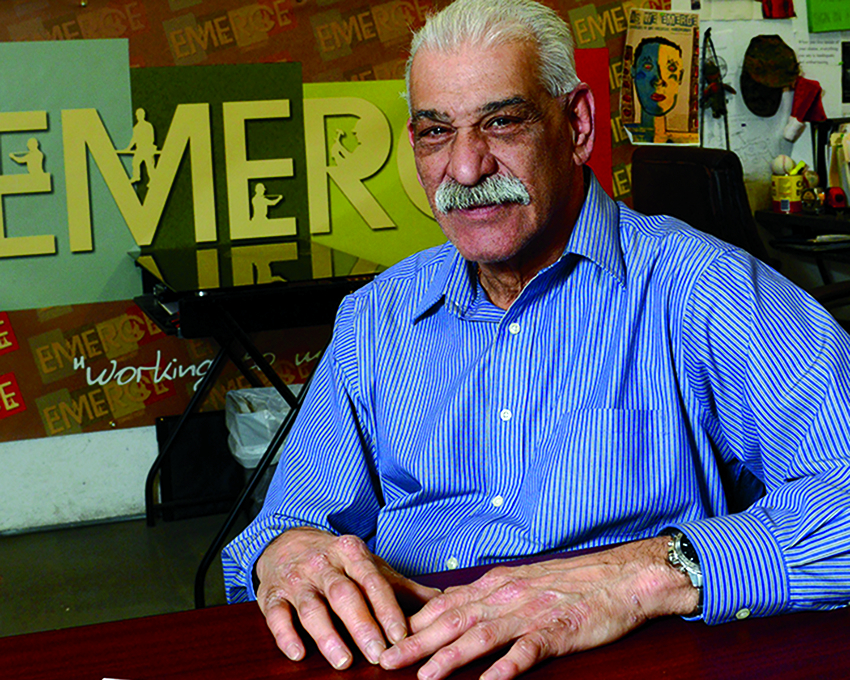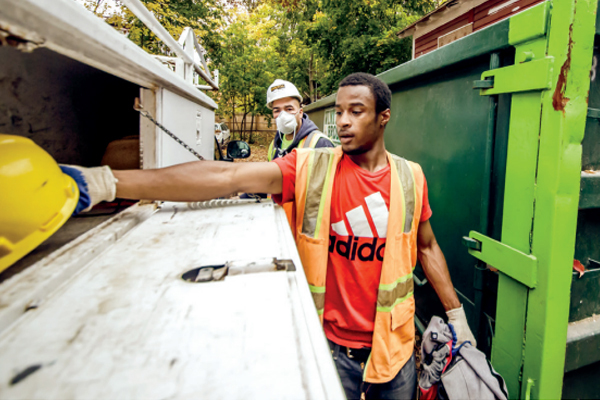Creating Opportunity for a Better Life
The people who show up at our doors are broken. They think that they need a job, but what they really need is to believe in themselves.
 |
Dan Jusino, founder of Emerge CT, a transitional work program with academic and social supports for recently incarcerated men and women. Photo Kathleen Cei |
Dan Jusino has had a long career working with people coming out of prison. For most of it, he was a firm believer in "rapid attachment to work," the principle that finding someone a job upon release was the first and most important step to preventing reincarceration. Then he took a hard look at the data on re-offense rates and discovered that he had been wrong. The majority of people returning to prison, in fact, were working at or shortly before the time of their re-arrests. So he committed himself to doing his work differently.
He consulted veteran workforce expert John Padilla, a fund founder at The Community Foundation and former board chair, and visited a half-dozen successful reentry programs around the country. Taking what he learned, Jusino founded Emerge.
The Emerge model is based on the evidence that overwhelming numbers of people cycling through our prison systems are functionally illiterate and have longstanding emotional and mental health problems. Left unaddressed, these issues put them at risk of reoffending whether they are working or not.
"The people who show up at our doors are broken," says Jusino. "They think that they need a job, but what they really need is to believe in themselves. When they begin to believe in themselves, then they can do for themselves and not wait for others to do for them."
Because the men and women walking through Emerge's doors expect help with transitioning to a real job, Jusino uses their expectation as an incentive to buy into the larger program. As Jusino puts it, the job is a "carrot" and the primary outcome is not employment, but a better life.
Emerge is a social enterprise that has contracts with local construction and landscaping employers to supply work crews. The job experiences pay above minimum wage and offer training. To make it on to a work crew, participants must first commit to improving themselves. If they test below high school-level reading and math, they are assigned to an Emerge tutor and must show progress in a self-directed computer-based academic curriculum. Those with children take parenting classes. Court-ordered debts are examined for modification. And no one is allowed to avoid addressing long-standing emotional and behavioral issues.
Jusino makes mental health a top priority and has established partnerships with therapy providers for referrals.
 |
Emerge work crews learn construction skills on the job while earning a paycheck. |
"Most of the people I work with have unresolved traumatic childhood experiences," Jusino says. "When we get them to pause enough to address them, they can move forward. We provide them with the tools and the opportunity to forgive themselves. That translates into real opportunity." By combining transitional work training with additional support services, Emerge's model is proving effective.
Compared to the state recidivism rate of 47 percent, the rate among Emerge participants is 14 percent, and state officials are talking with Jusino about how to bring the model to other locations. And while he can't prove it, he believes the behavior transformations that took place in some of Emerge cohorts have moved the needle on lowering street violence in New Haven.
The ripple effect, Jusino says, is greatest when he gets buy-in from someone who has served a lengthy prison sentence and is known to a younger generation.
"If I can get one of them to put on an Emerge vest, then that sends a message. They are now an ambassador."
Emerge is a multi-year grant recipient of The Community Foundation.
